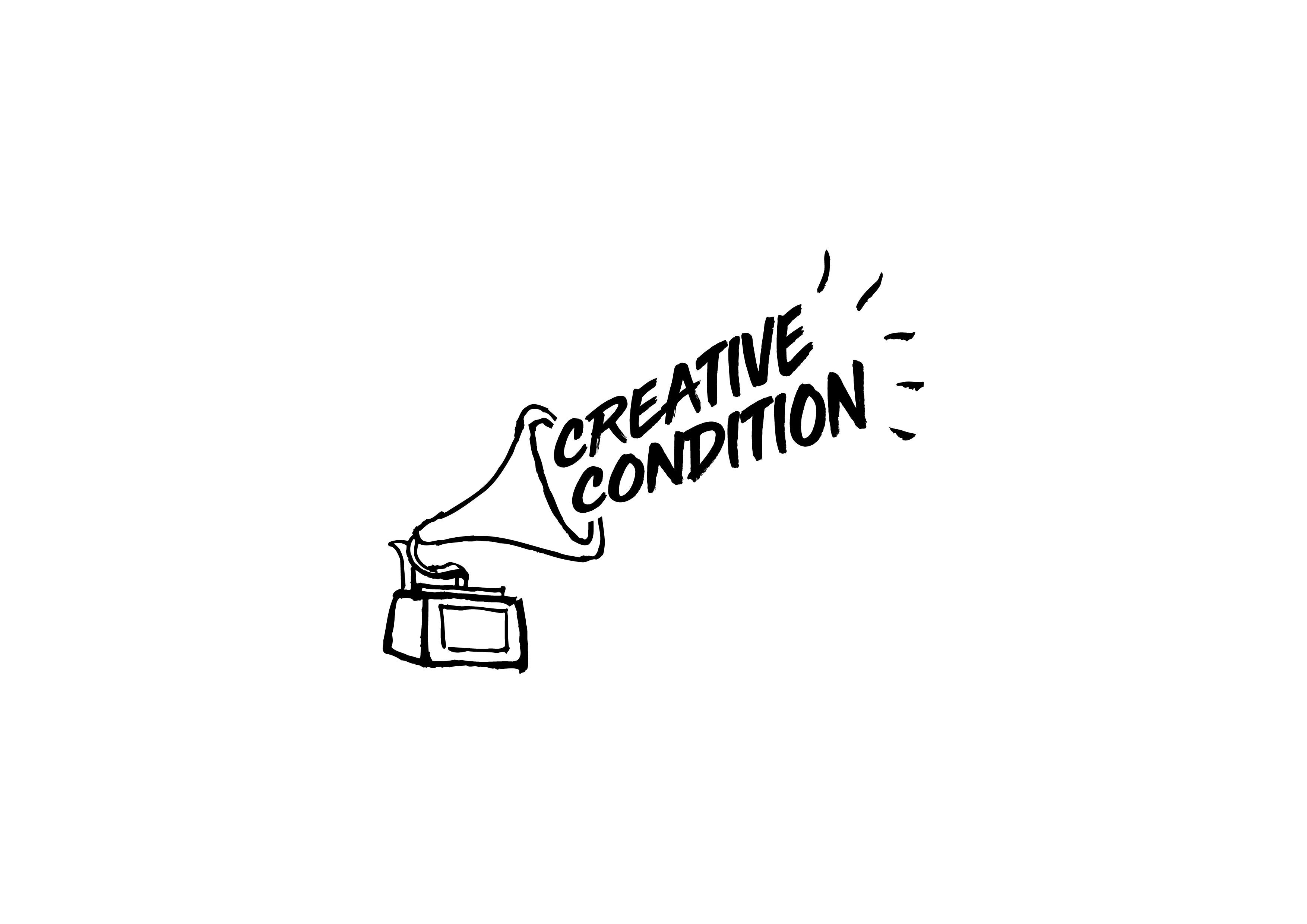Recently, Dom conducted an interview in preparation for some public speaking at a City & Guilds Group event in London. Here’s the full Q/A (prepared by G&GG Employer Brand Manager, Emma Nicholls) in which Dom talks about disability, offers advice to those looking for work, and speaks on his own diverse experiences and accessibility, and disability in the workplace in 2016.
Q) Can you tell us about the disabled entrepreneurs network?
a. What is the purpose?
Always to support people with disabilities into business, and to be honest to support people with disabilities to achieve any goals within our means.
b. What do you do?
We offer advice and support to people with disabilities over a range of mediums, including email, Skype and face-to-face. I started my career as a music journalist though, so during the day a lot of the time, I still work on Soundsphere magazine, which is a magazine championing alternative music and culture in the North of England, and I also run a press agency supporting artists, and small-to-medium businesses, that’s called Creative Condition. Both Soundsphere, and Creative Condition are what led me to partnering with Shane [Bratby] and setting up DE.
c. Why did you set it up?
Q) You support a lot of disabled individuals in the UK through the network – Can you tell us about your own experience of working.
To be honest, I’ve fit into a range of work environments. I used to be confined to a wheelchair full-time, but during my teenage years, and after a truckload of operations, injections and the like, my attitude was (and has always been) if I can stand, especially when there are people that cannot, then I should. So, at times it’s tough doing a full working day in an office, and I think that’s the main thing – tiredness and leg/joint pain, but I enjoy what I do (and I am fortunate in that) so it’s worth a bit of pain, and my alternative is sitting on my couch working, and let me tell you, that’s no good for the ol’ back!
a. You have a condition called Cerebal palsy – for those that don’t know can you explain a bit about it?
It effects people in such different ways, but it involves a tightening of the muscles. So you’ll see people with barely any movement who struggle to communicate, and you’ll see people walking freely, but with what might look to someone on the outside as a serious limp. But yeah, the impacts are so varied. I also have some brain damage as well, effecting the left-side, and this also effects my body as well – mainly movement in my hands, but I (try to) play drums in a band, so that probably doesn’t help me either.
Again, CP effects people to such varying degrees, and I feel quite lucky to be experiencing the range of movement I do at 30-years-old, but it’s definitely an uphill climb! My doctors tell me it can’t get better, but it can get worse, so it’s up to me to exercise and keep as active as possible! Physiotherapy, chiropractors, and the gym (one or all, depending on finances) are all good things to dabble in to maintain any flexibility you might have.
b. How has this impacted on your life?
In short, I don’t know. I mean, I’ve never had to experience anything else. I think that there are a lot of preconceptions that come – I think employers are dead against hiring someone with a disability to do heavy lifting, or till work in retail for example – at least initially. I feel like as people with disabilities a lot of the time, we need to prove ourselves at first (maybe via a trial shift) and our capabilities, but once that’s done – because it’s 2016 now – most employers are keen to support. I have met people that work in retail for example (with disabilities) that completely smashed their trial shift, and that’s how they got the job! I had internships before I went to work for some of the magazines I have when I started out, so then came the opportunity to prove myself and my value, which led to paid work.
To go into more detail, I have always found ways to get things done, as with most of my friends – there’s work-arounds for everything you could possibly think of, both personal and professional! So really, CP hasn’t impacted my life, other than it’s challenged me to push myself more. I think the last major challenge that most people with disabilities have in this day and age that look down on us a little, perhaps even without meaning to – they automatically assume that because we’re disabled (if they haven’t made the effort to speak to us in the first place), that we can’t talk, or that we are of lesser intelligence, but I think this comes down to personal upbringing and circumstances, so I don’t ever hold it against these types of people. People will always be afraid (or cautious, at least) of what they don’t understand.
Q) Why did you decide to set up your own business?
Desire to do something different. Remember, my first business had nothing to do with disability – I mean, we do have writers that have a form of disability – but it wasn’t central to the business plan, we wanted to support young people in the North of England, from smaller cities – Hull, Leeds, York, Barnsley, Preston etc to gain journalistic skills that would enable them to start a career in writing. To be honest, I also wanted to have a platform where I could write about all sorts of weird and wonderful music, and go to gigs for free! We probably got a lot more attention and press because of my disability though, to be fair!
It was the same with Creative Condition, man. I mean, the industry standard for a decent music press campaign is over £1,000 a month, if you want to work with a major firm and get into the bigger publications. We help small labels, and independent acts that can’t really afford those budgets. We also find that rule extends to small businesses, so we try and help as many people out as we can, again within our means, and providing we can make a living!
Now, Disabled Entrepreneurs – that was formed after myself and Shane wanted to make a difference. We were both working with Enterprise UK, and we met in Bradford. Shane was like, ‘Why are there no networking opportunities for people with disabilities like right here, for Enterprise UK.’ So, built a network to support people with disabilities. It’s been a wonderful experience, and we’ve met some awesome people, and the fact that we’re still going is a testament to the fact that people find value in what we’re doing, which is really important!
Q) We know diversity is good for business and innovation. As part of your role as an Enterprise UK and NYBEP STEM Ambassador (a not-for-profit social enterprise, an education business partnership) you talk about entrepreneurship and innovation. Can you share how you think employers could encourage diversity and innovation in their business?
I think it’s really important to encourage co-working, and collaboration for one – have open spaces where possible with accessible furniture (UK company Muzo are particularly good – http://muzo-works.com) to encourage free movement. I think it’s important for people to mix, and share ideas as much as possible within the work place – of course, this is particularly useful within the creative sector, but I am seeing it more and more in corporate brands. I mean, look no further than Apple and Google’s practices to see what I’m talking about. Number one though? Employers need to take the time to research their employees disabilities, and find out ways they can help and accommodate. Of course, a number of employers do this now, but you’d be surprised how many don’t take the time. Trust me, it’s worth it, and you’ll look better for taking the time out!
Q) Alongside running your own business we know you talk in schools, universities and at various business events on behalf of the disabled entrepreneurs network. What do you think employers could be doing more of to help support disabled people?
Like I mentioned, research, and preparation are key. But not just through the interview process – a lot of times people with disabilities might be too proud to talk about everything that bothers them, so a degree (even 30 mins) of personal research can help an employer get the most out of a new employee.
I think employers are becoming increasingly more “switched on” to the idea of having disabled employees, so I think now, it’s just a case of being prepared, and open to all the good things that come from employing someone with a disability, and a great set of skills.
Q) What advice would you give a disabled person looking for employment?
As a disabled person, you can make yourself more employable by volunteering in areas that you’re interested in, while you’re looking for work – and use this time to push yourself out of your comfort zone, so you’re ready for anything when your employment starts. This time will also give you time to perfect your CV – ask for help! That’s a big one – no matter what age you are, always ask for help if you need, it will only err…help you in the long run, and asking for help allows you to develop cool personal and professional contacts that can support you in a variety of ways as you develop either in a job, or starting your own business up. If you have trouble with regards to movement, there are a number of voluntary opportunities that will let you work from home too.
a. And what about if they are struggling at work for any reason?
I think if they are struggling, the volunteer option is a cool route to go down, at least to gain some experience in an area that they aren’t sure about. Internships as well – then, you have the pressure of a workplace environment, but if you make a mistake nobody’s going to kill you!!
Again, look for an internship that suits you – close to home, or one where your employer (Soundsphere magazine allows this for example, as does the Creative Condition), will allow you to work in the comfort of your own home, with specific deadlines in place, but be prepared if you’re working like that to have plenty of Skype meetings – it’s very important to be communicative and likeable. You can absolutely be the most intelligent person in the universe, but if nobody likes you, you’re not going to get the work. People want to work with people that they get on with!
So, in whatever role you are going for – be nice, polite and presentable (whatever the role of the company demands), and also be willing to push yourself out of your comfort zone where possible, even if you’re working from home.
In terms of finding jobs and opportunities, there are tonnes of job-sites specific to people with disabilities – http://www.
Q) What advice would you give people managers when managing an employee with disabilities?
It’s all about communication, so manage by communication – be clear about what you expect from the employee and work with them to work out how you can achieve those goals together, and that can happen either before or after employment begins!

